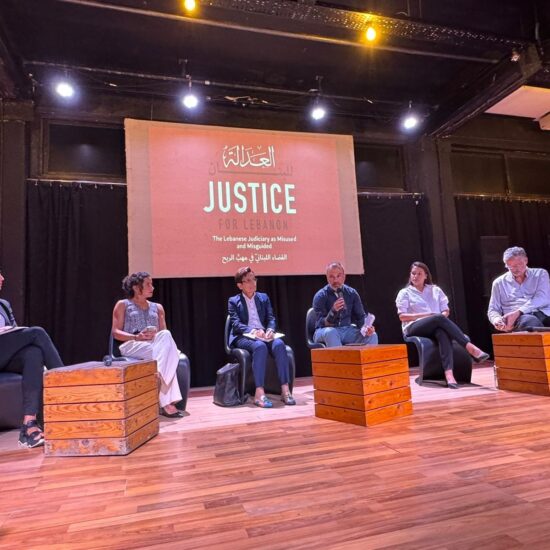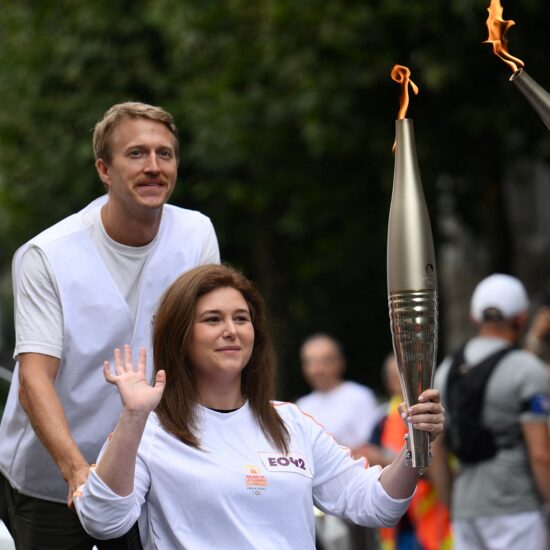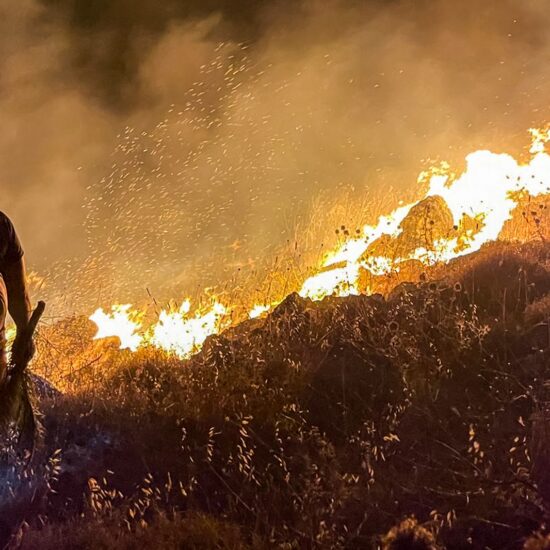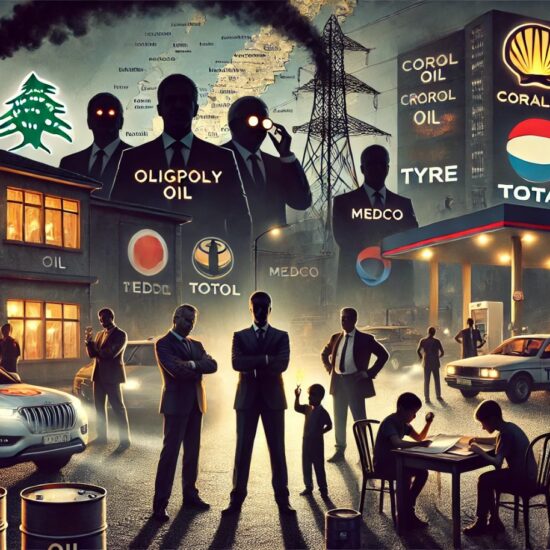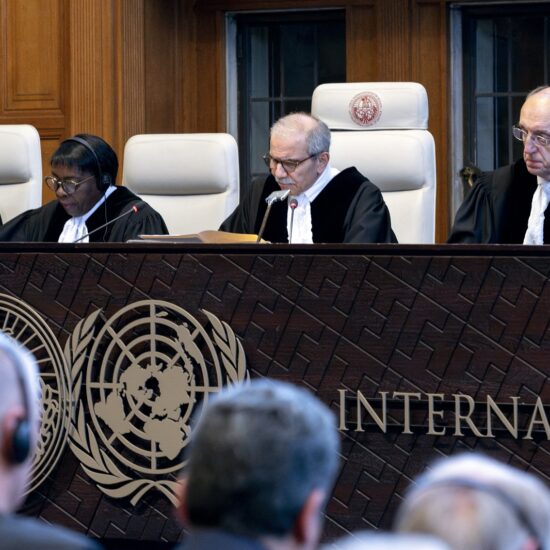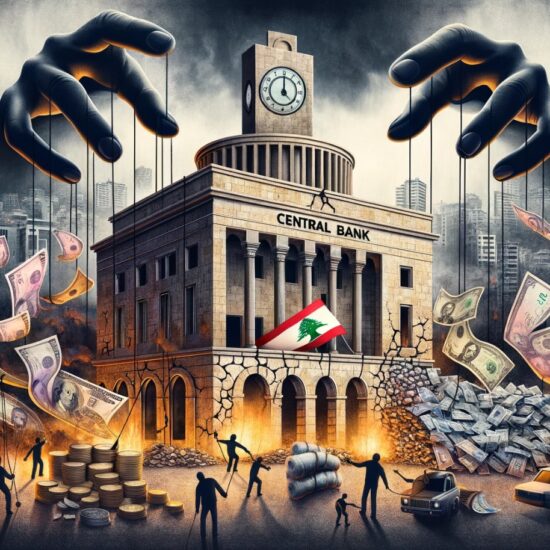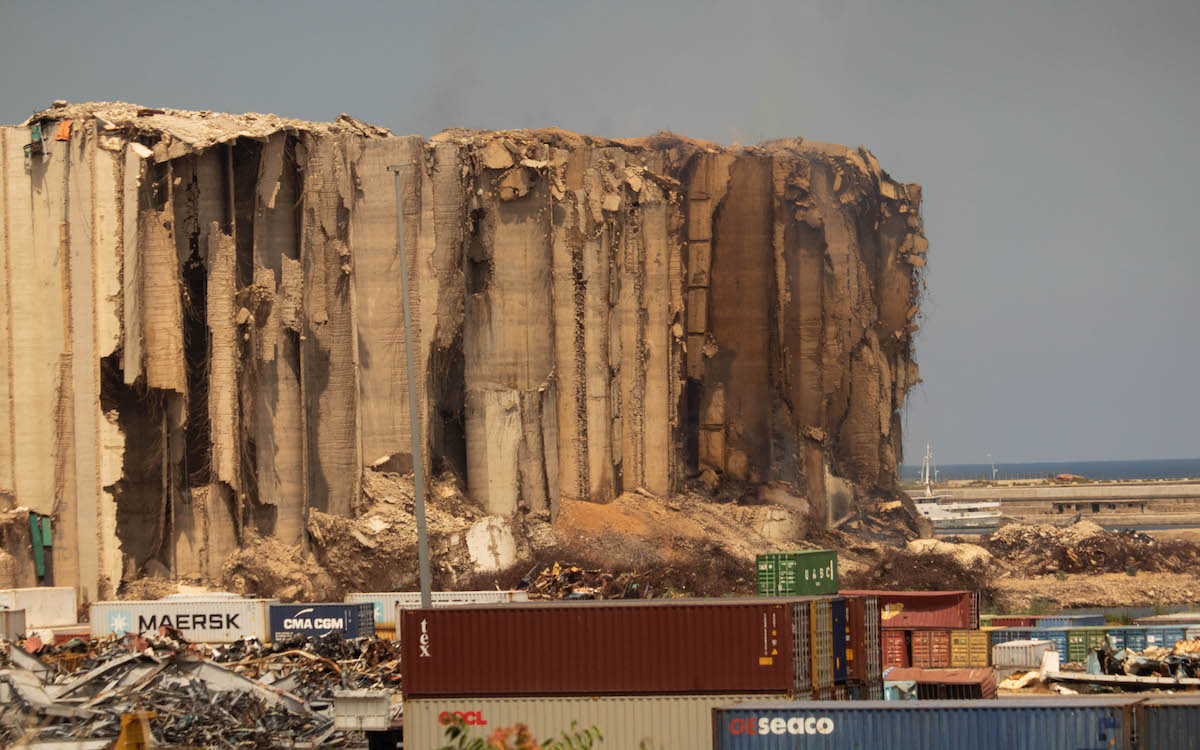
A section of Beirut’s grain silos finally collapsed after being on fire for several weeks.
This was to be expected. The silos were heavily damaged by the August 4 explosion and the fire further weakened its structural integrity, making it only a matter of time before they eventually came down.
But, still, when the northern section of the silo did fall on the afternoon of Sunday, July 31, it came as a shock for everyone who witnessed it.
عاجل.. انهيار اهراءات القمح في #مرفأ_بيروت .. ارتدوا الكمامات pic.twitter.com/pOZNkYkri6
— Salman Andary (@salmanonline) July 31, 2022
Here was the collapse of a symbol not only for those who were killed and injured in the explosion, but for the rampant impunity and lack of justice that runs throughout the country. Nearly two years later, those who played a role in allowing the blast to happen through their negligence face no consequences; instead they are being protected by their political allies.
The investigation is stalled, going nowhere due to attempts by the accused to escape justice, and few, if any, maintain any sense of hope that justice will prevail in the end.
That is something that hardly ever happens in Lebanon. Not when the politically connected are involved.
With the collapse of the northern section of the silos, it is only a matter of time before the rest of it comes crumbling to the ground, giving the politicians exactly what they wanted – the demolition of the silos.
When this does happen, it will not just be the silos that are destroyed, but the hopes of everyone seeking justice as well.
In Lebanon
A wheat problem: The Ukrainian embassy in Lebanon accused a ship that docked in the port of Tripoli of containing grains stolen by the Russians in the occupation of Ukraine.
The diplomatic mission said that the Laodicea was filled with 5,000 tons of flour and 5,000 tons of barley that Russia had plundered from Ukrainian factories following the February 24 invasion. Russia has denied all of these accusations.
The Laodicea is also under US sanctions for being involved with the Syrian government.
The ship was en route for the port of Tartus in Syria, but was rerouted to Lebanon for an unknown reason.
Despite the insistence by the Ukrainians that there is stolen grain on the ship, Lebanese authorities have cast doubt on these claims, saying that there was “nothing wrong” with the ship’s cargo.
Bringing home the wheat: Lebanon’s Parliament approved the use of a $150 million World Bank loan to secure wheat imports as the country deals with a bread shortage.
For several weeks there have increasingly been lines outside of bakeries as less and less bread is being made due to a lack of wheat caused by the economic crisis as well as the Russian invasion of Ukraine.
According to caretaker Economy Minister Amin Salam, this will secure wheat for at least six months.
A shipment of wheat from Ukraine is currently headed for Lebanon after departing from Turkey.
Stalemate: Lebanon’s parliamentary speaker, Nabih Berri, has said that he will not call for a session of Parliament to elect a new president until reforms that will unlock funding from the IMF are passed.
President Michel Aoun’s term as president comes to an end on October 31 and, given that in the nearly three years since the economic crisis began Parliament has failed to enact any reforms to combat the crisis, it is unlikely that they will be able to do so in the remaining three months before Aoun leaves office.
Prime Minister-designate Najib Mikati is also not expected to form a government in time, potentially throwing the country into an unprecedented political crisis, as there has never been a power vacuum where there is no president and only a caretaker government in place.
In the event that Berri does not call for a session to elect a president until reforms are passed, it will likely exacerbate the already dire situation in the country.
Discrimination on the rise: The UN refugee agency has said that discrimination against Syrian refugees in Lebanon has drastically risen in recent weeks as the country continues to face a worsening economic situation.
There was a particular focus on discrimination when it comes to food, as some bakeries have refused to sell bread to Syrians or prioritize Lebanese first.
According to an activist in the Bekaa, bakeries are flat out refusing to sell bread to anyone who is not Lebanese.
يبقى المخبز على بُعد دقيقة من بيتي ومقدرش أجيب منه رغيفين لأن الخبز بس للبنانيين🙂
أنا تعبت وزهقت من العنصرية المقيتة اللي كل يوم بقابلها كأجنبي أسمر مقيم في #لبنان، اكتفيت من محاولاتي للضحك وسط الخرى ده كله بجد، الوضع مش مضحك أبداً، العنصرية شيئ كتييييير مؤذي نفسيًا. pic.twitter.com/9Jx8pFYMP4
— Mostafa Fouad | مصطفى فؤاد (@MostFouad) July 28, 2022
In some parts of the country, municipalities have issued curfews for Syrians, forbidding them from going out past the evening.
The UN agency called on the Lebanese government to ensure that the refugees are treated fairly, however, the government has recently announced plans to send Syrians back to their home country.
Sending a message: Hezbollah released a video containing drone footage taken by the armed group of facilities and ships in the Karish field that Israel is using to dig for fuel just hours before US energy envoy Amos Hochstein arrived in Lebanon to help mediate maritime border negotiations between Lebanon and Israel.
Prior to #US mediator Amos Hochstein arriving to #Lebanon, #Hezbollah released drone footage that it took of the vessels #Israel is using to drill for fuel in the #Karish field. Hochstein is coming to help with maritime border negotiations between Israel and Lebanon. The two… pic.twitter.com/p8YSJSm32c
— Nicholas Frakes | نيكولاس فريكس (@nicfrakesjourno) July 31, 2022
In the video, the group says that the facilities and ships are “in range” of their missiles. Hezbollah has previously stated that Israel’s actions in the Karish field are a provocation and that may warrant action.
However, Hezbollah is unlikely to outright attack the field and will stick to tough rhetoric and launching reconnaissance drones. Lebanon would not be in serious negotiations with Israel unless the Shiite group at least gave its tacit approval.
Hochstein is currently in Lebanon and meeting with Lebanese leaders to discuss the border demarcation.
Abuse in Roumieh: A social media page dedicated to people in Lebanese prisons posted photographs that allegedly depict prisoners who were beaten and tortured inside the country’s infamous Roumieh prison.
#ضرب_وجَلد_في_رومية
#الجمعة 29 تموز 2022
جريدة الأخبار#لينا_فخر_الدينأرسل عدد من السجناء في مبنى « #المحكومين» في #سجن_رومية صوراً تُظهر تعرّض عدد منهم للضرب على يد عناصر فرقة مكافحة الشغب التي اقتحمت المبنى https://t.co/x2rNNBNwOqhttps://t.co/x2rNNBNwOq pic.twitter.com/WnLbtGXBKW
— سجناء لبنان #العفو_العام (@sujanaleban) July 28, 2022
Roumieh prison is known to be overcrowded, with cells in squalor. The prison is said to have a maximum capacity of around 1,500 prisoners but there are currently well over 3,500 people imprisoned there.
View this post on Instagram
Many of those imprisoned have not yet been sentenced and are still awaiting trial in Lebanon’s slow-moving judicial system.
In the region
Storming Parliament: Iraqi supporters of the Shiite cleric Muqtada al-Sadr occupied the country’s Parliament in Baghdad’s Green Zone for the second time in a week and have refused to leave until their demands for early elections and constitutional amendments are met.
These protests come in lieu of the resignation of al-Sadr’s bloc in Parliament after they were unable to form a government and elect a new president, leading the way for Iran-backed MPs to take their place.
Al-Sadr called on his MPs to resign as part of a negotiating tactic that backfired.
Now, if a new government is formed and new president elected, they would likely lean on the pro-Iran side, something that al-Sadr’s politicians campaigned against.
Al-Sadr is one of the country’s most powerful religious leaders and is able to command a large section of Iraqi society with his speeches. He has urged his supporters to remain in Parliament until their demands are met.
Facing the consequences: Several former members of the self-proclaimed Islamic State have been sentenced to jail for the roles that they played in the terrorist group.
In Germany, a woman was sentenced to 3 ½ years in jail for taking her young son to Syria without the child’s father knowing.
In Canada, Mohammed Khalifa was given a life sentence for doing the English-language voiceovers in ISIS propaganda videos and for taking part in several executions.
For the most part, countries are unwilling to repatriate their citizens who joined the Islamic State, but those who are repatriated are often questioned and charged for the roles that they played.
Rejoining the fold: Algeria’s foreign minister expressed support for Syria rejoining the Arab League during a visit to Damascus on July 25.
Algeria is yet another country that has bettered ties with the Assad regime after the government retook the majority of the country following a bloody 11-year civil war.
Syria’s membership with the Arab League will likely continue to remain frozen for the time being, but, if current trends are any indication, it will not stay that way forever.
The death of democracy: A referendum to approve a new constitution that pushes Tunisia closer to authoritarianism was approved after a July 25 vote despite low voter turnout.
President Kais Saied has increasingly tightened his grip on power since he dissolved Parliament and fired the prime minister last year in a move that, at the time, was widely celebrated by Tunisians who felt that the government was ineffective.
However, there has been growing unease in Tunisia about the actions that Saied has been taking and fears that the only democracy to emerge from the 2011 Arab Spring was about to fall back into a dictatorship.
Saudi PR campaign: Saudi Arabia has been working hard to change its image from an ultra-conservative nation that does not allow for dissenting opinions to a modern country on the forefront of development.
One of these projects meant to change the image of Saudi Arabia is Neom, a “city of the future” that will cost the country hundreds of billions of dollars to finish, if it is even in fact completed, and has been the pet project of the country’s crown prince, Mohammad bin Salman.
The project is not expected to be finished for another 50 years, but that has not stopped promotional videos of the city from being released to angle the narrative away from the killing of journalists and imprisonment of activists to the ambitious project.
Rights groups urged governments not to fall for the well-constructed PR campaign and to keep pushing harder on human rights in the Kingdom.
What we’re reading
Manufactured violence: Fighting in southern Syria is nothing new. When the civil war began in 2011, it was only one of many areas that saw fighting. However, NOW’s David Isaly writes that much of the violence that we are seeing today in Daraa and Suwayda is created to divide the region.
More trouble: Lebanon has been facing crisis after crisis since late 2019. Now there is a bread crisis with long lines forming outside of bakeries. I wrote for NOW about how the plans to use World Bank funding to secure wheat for six months is yet another short-term solution by the government that will ultimately change nothing in the long run.
The suit: It is not just politicians in Lebanon that are to blame for the August 4 explosion. There are companies involved that were just as negligent. Walid Sinno wrote for now about a lawsuit filed in Harris county, USA, against one of these companies.
Drones: Since the revolution in 1979, Iran has become exceedingly proficient at producing high-quality drones. Now, as New York Times journalists Euan Ward and Farnaz Fassihi found, Iran is upping its production.
Removing a symbol: The Palestinian flag is not illegal in Israel, but it is often taken down or desecrated as soon as it appears. Far-right lawmakers are also trying to make it illegal to brandish it at places that receive government funding. The New York Times’s Raja Abdulrahim looks at the attack on this symbol of Palestinian identity.
Lebanon+
Podcast: Jad Ghosn has been an active podcaster who talks about anything and everything in extreme depth. In the latest episode of Reflections with Jad Ghosn, the host spoke with Johnny Munir about the conflict between the Lebanese Forces and Hezbollah and the reality of the current crisis.
Until next week, follow NOW Lebanon on Twitter, Instagram, Facebook, and LinkedIn, and subscribe to our weekly newsletter. And stay safe.



